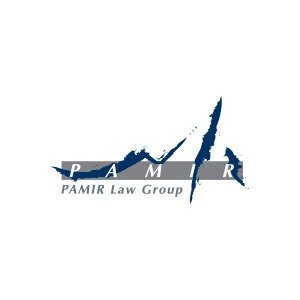Best Art & Cultural Property Law Lawyers in Taiwan
Share your needs with us, get contacted by law firms.
Free. Takes 2 min.
Or refine your search by selecting a city:
List of the best lawyers in Taiwan
About Art & Cultural Property Law in Taiwan
Art & Cultural Property Law in Taiwan encompasses a range of legal practices that ensure the protection, preservation, and rightful ownership of cultural assets. This field of law addresses issues related to art transactions, repatriation of cultural properties, and heritage site management. Like many countries, Taiwan recognizes the importance of safeguarding cultural heritage and promoting responsible stewardship of artistic and historical artifacts. The legal framework in Taiwan covers intellectual property rights, cultural heritage protection laws, and international conventions that Taiwan is part of, all aimed at ensuring a balanced approach to protecting cultural assets while enabling lawful trade and ownership.
Why You May Need a Lawyer
There are several situations in which individuals or organizations may require legal assistance in the field of Art & Cultural Property Law in Taiwan. These include:
- Disputes over ownership of art or cultural artifacts.
- Legal support during art transactions or art auctions.
- Advice on compliance with local and international regulations when acquiring artworks.
- Matters involving the repatriation of cultural property to or from Taiwan.
- Intellectual property issues related to creative works.
- Challenges concerning the export or import of cultural artifacts.
- Protection and preservation advice for cultural heritage sites.
- Litigation concerning unauthorized usage or reproduction of art.
Local Laws Overview
Taiwan’s legal framework concerning art and cultural property consists of various national statutes and international treaties. Key aspects include:
- The Cultural Heritage Preservation Act, which outlines the conservation and management of physical and intangible cultural assets.
- Regulations on the import and export of cultural property aimed at preventing illicit trade.
- Intellectual Property laws that protect artistic creations, including copyright, trademark, and patent laws.
- Participation in international agreements such as the UNESCO conventions for the protection of cultural property in the event of armed conflict.
Frequently Asked Questions
What is considered cultural property in Taiwan?
Cultural property in Taiwan includes tangible items such as artifacts, artworks, manuscripts, and architecture that hold cultural, artistic, or historical significance. Intangible cultural heritage, including traditions and expressions, is also protected under Taiwanese law.
Can I export art from Taiwan legally?
Yes, it is possible, provided the artwork does not fall under protected categories as outlined by the Cultural Heritage Preservation Act, and you comply with customs regulations and obtain any necessary permits.
How are intellectual property rights enforced for art in Taiwan?
Intellectual property rights for art are enforced through copyright, trademark, and patent laws that protect creators' rights and provide recourse against infringement.
What should I do if I discover an archaeological artifact on my property?
Contact the local cultural affairs authority immediately, as archaeological finds are protected by law, and unauthorized removal or disturbance is prohibited.
Are there specific laws regarding the repatriation of cultural property to Taiwan?
Yes, Taiwan has specific guidelines and works in coordination with international legal frameworks to facilitate the lawful repatriation of cultural property.
How can I verify the authenticity of a piece before purchase?
Engage experts for provenance research, authenticity checks, and consult with legal professionals specializing in art law to mitigate risks.
Is there legal recourse if an artwork I purchased was falsely represented?
Yes, Taiwanese law provides remedies through civil litigation for breach of contract or fraud, and seeking professional legal advice tailored to your situation is advisable.
What are the penalties for illegal export or import of cultural goods?
Penalties can include fines, confiscation of the goods, and even imprisonment, depending on the severity of the offense under Taiwanese law.
Do I need a license to operate an art gallery in Taiwan?
Operating an art gallery may require business registration and compliance with local commercial regulations and tax laws, although specific art-related licenses are generally not mandatory.
How does Taiwan handle cultural heritage preservation?
The Cultural Heritage Preservation Act provides the framework for protecting and managing cultural heritage sites and artifacts, with specific regulation and oversight by relevant government bodies.
Additional Resources
For further assistance, the following organizations and bodies can be helpful:
- Ministry of Culture - Responsible for overseeing cultural affairs and policy development.
- National Palace Museum - Offers insights into art and cultural property management.
- Taiwan Intellectual Property Office (TIPO) - Provides resources on IP rights relevant to art.
- Local Bar Associations - Can help connect individuals with specialized art law attorneys.
Next Steps
If you need legal assistance in Art & Cultural Property Law, consider the following steps:
- Identify your specific legal needs related to art or cultural property.
- Consult with a legal professional specializing in art and cultural property law.
- Gather all relevant documentation and information pertaining to your situation.
- Explore mediation or negotiation as initial steps before proceeding to litigation.
- Stay informed about local and international laws relevant to your case.
These steps will guide you towards a resolution that respects the cultural importance and legal standing of art and cultural properties.
Lawzana helps you find the best lawyers and law firms in Taiwan through a curated and pre-screened list of qualified legal professionals. Our platform offers rankings and detailed profiles of attorneys and law firms, allowing you to compare based on practice areas, including Art & Cultural Property Law, experience, and client feedback.
Each profile includes a description of the firm's areas of practice, client reviews, team members and partners, year of establishment, spoken languages, office locations, contact information, social media presence, and any published articles or resources. Most firms on our platform speak English and are experienced in both local and international legal matters.
Get a quote from top-rated law firms in Taiwan — quickly, securely, and without unnecessary hassle.
Disclaimer:
The information provided on this page is for general informational purposes only and does not constitute legal advice. While we strive to ensure the accuracy and relevance of the content, legal information may change over time, and interpretations of the law can vary. You should always consult with a qualified legal professional for advice specific to your situation.
We disclaim all liability for actions taken or not taken based on the content of this page. If you believe any information is incorrect or outdated, please contact us, and we will review and update it where appropriate.
Browse art & cultural property law law firms by city in Taiwan
Refine your search by selecting a city.














